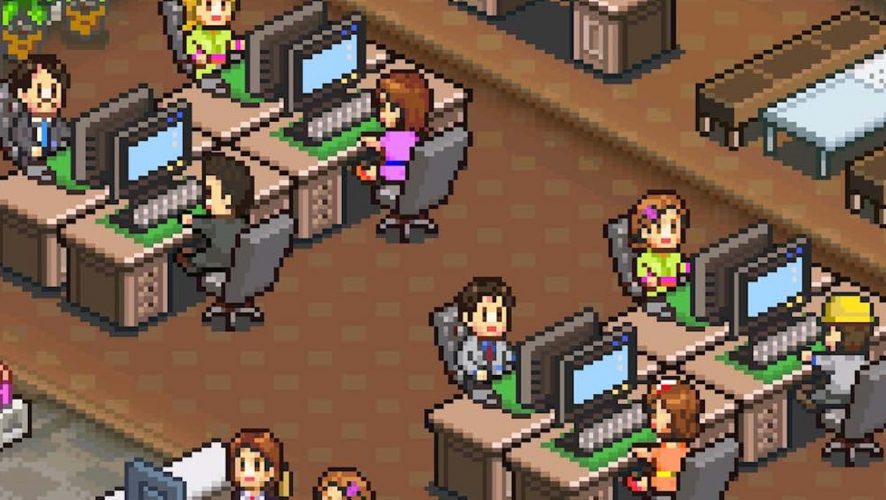Another Delay in Night City: What the Phantom Liberty Delay Means for PC Gamers The news broke yesterday: CD Projekt Red (CDPR) has announced another delay for Cyberpunk 2077: Phantom Liberty, pushing the release back a few weeks.

The news broke yesterday: CD Projekt Red (CDPR) has announced another delay for Cyberpunk 2077: Phantom Liberty, pushing the release back a few weeks. While initially slated for September, the new launch window targets a slightly later date. Predictably, the internet is ablaze with reactions ranging from understanding to outright fury. As someone who's been in the trenches of game development for a while, I want to offer a perspective that goes beyond the knee-jerk reactions and dives into what this delay really means for PC gamers.
CDPR: A History of Highs, Lows, and Ambitious Scope
To understand the significance of this delay, it's essential to understand CD Projekt Red. They rose to prominence with The Witcher series, a fantastic adaptation of Andrzej Sapkowski's novels. Each installment showed significant growth, culminating in the critically acclaimed The Witcher 3: Wild Hunt. This success cemented their reputation for crafting immersive, story-driven RPGs with incredible depth.
However, the launch of Cyberpunk 2077 presented a stark contrast. The game, burdened by last-gen console limitations and rushed development, was plagued with bugs, performance issues, and ultimately, broken promises. The PC version, while generally more stable than its console counterparts, still suffered from its fair share of problems. It’s important to remember the sheer scale and ambition of Cyberpunk 2077. Creating a sprawling, reactive open world with a complex narrative is a Herculean task, and the initial release clearly buckled under the weight of those ambitions. CDPR's subsequent commitment to fixing the game deserves recognition. They didn't abandon it; instead, they dedicated significant resources to patching, optimizing, and ultimately delivering the experience they initially envisioned.

Decoding the Delay: Polish, Optimization, and Trust
The official statement from CDPR cites further "polish and optimization efforts" as the reason for the Phantom Liberty delay. This is industry speak, of course, but what does it actually mean?
Polish: In game development, "polish" encompasses a range of tasks, from squashing minor bugs and smoothing animations to refining UI elements and ensuring consistent visual quality. It's the final layer of refinement that separates a good game from a truly great one. Given the rocky launch of Cyberpunk 2077, CDPR is acutely aware of the importance of a polished release.
Optimization: This is where PC gamers should pay close attention. Optimization refers to the process of improving the game's performance across a range of hardware configurations. It involves tweaking code, optimizing assets, and implementing various techniques to ensure the game runs smoothly, even on less powerful PCs. The fact that CDPR specifically mentions optimization suggests they are working hard to make Phantom Liberty a better experience for PC players, regardless of their system specs.

The delay, in my opinion, is a calculated risk. CDPR is betting that a slightly later, but significantly more polished and optimized, release will ultimately be better for their reputation and long-term sales. They understand that they need to regain the trust of PC gamers, and delivering a broken or poorly optimized DLC would be a disastrous misstep. They're likely also taking lessons from the recent release of Starfield, noting that stability and optimization are key.
Impact on PC Gamers and the Wider Landscape
So, how does this delay affect PC gamers specifically?
Short-Term Disappointment: Let's be honest, nobody likes a delay. The anticipation for Phantom Liberty has been building for months, and pushing the release back is undoubtedly frustrating. However, a few weeks of extra wait time is a small price to pay for a better experience.
Potential for Improved Performance: This is the key takeaway. The focus on optimization suggests that CDPR is serious about addressing the performance issues that have plagued Cyberpunk 2077 on PC. This could translate to higher frame rates, smoother gameplay, and a more enjoyable experience, especially for those with mid-range or older systems.
Signal to the Industry: CDPR's decision sends a message to the wider industry: quality matters. In an age of rushed releases and day-one patches, prioritizing polish and optimization is a bold move. It suggests that CDPR is committed to delivering a premium experience, even if it means delaying the game.

Different Perspectives: Acknowledging the Skepticism
It's crucial to acknowledge that not everyone will view this delay with optimism. Some gamers are understandably skeptical, given the history of Cyberpunk 2077. They may see this as another broken promise or a sign of deeper problems within the development process.
This skepticism is valid, and CDPR needs to earn back the trust of these players. They need to be transparent about the reasons for the delay and demonstrate tangible improvements in the game's performance and stability. Actions speak louder than words, and the proof will be in the pudding when Phantom Liberty finally launches.

Conclusion: A Cautiously Optimistic Outlook
The delay of Cyberpunk 2077: Phantom Liberty is undoubtedly disappointing, but it's not necessarily a bad thing. CDPR's focus on polish and optimization suggests they are serious about delivering a better experience for PC gamers. While skepticism is warranted, there's reason to be cautiously optimistic. If CDPR can deliver on its promises and address the performance issues that have plagued the game, Phantom Liberty could be a significant step towards redeeming Cyberpunk 2077's reputation. Only time will tell if they can pull it off, but as someone who cares deeply about the craft and the people involved, I'm hoping they do. The future of Night City, and CDPR's standing in the industry, may very well depend on it.
